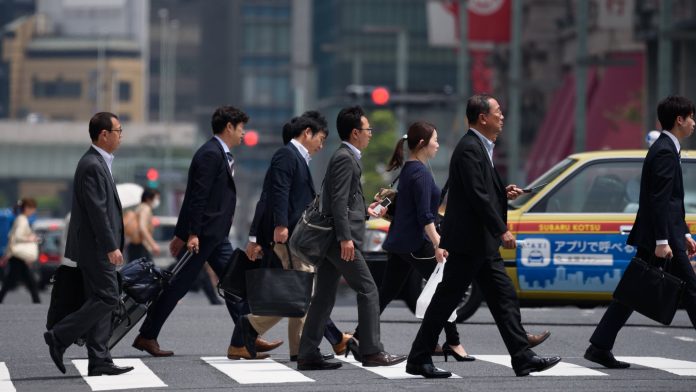Japan’s culture of work is steeped in workaholism. Many employees often work late into the night, leaving little time for rest and recuperation. Over the years, the many health problems that have arisen from such a lifestyle has led the government to implement policies to discourage such an unbalanced lifestyle; to varying degrees of success.
Japan’s latest attempt to alleviate the issue was finalised last week, with Prime Minister Yoshihide Suga’s Cabinet pushing out a proposal to let employees choose a four-day work week in its annual economic policy guideline. The policy aims to improve the work-life balance for workers who have family care responsibilities or need more time off to acquire new skills.
Opinions vary on whether the new policy will address challenges arising from the country’s labour shortage as intended depending on the viewpoints of employers or employees.
In general, employers believe that people working only four days a week will lead to a more motivated workforce, but also share concerns regarding a potential loss in productivity. On the other hand, employees are concerned that their pay may be cut due to the reduced number of working hours.
The new policy is expected to help people with family-care responsibilities avoid the need to quit their jobs, promote upskilling and re-skilling, and help more people take on side jobs, the government said.
The idea of a 4-day work-week might have seemed like anathema a decade ago, but over the years, the concept of a more flexible workplace has gained traction. The ongoing pandemic is also helping work from home policies gain acceptance throughout the world.
The ruling Liberal Democratic Party (LDP) in late April recommended the government to take policy measures to facilitate adoption of the system.
Working fewer days is expected to promote “diversified working styles” and prompt workers with new skills to move to growing industries such as IT, said the LDP.
At a key economic and fiscal policy panel meeting in mid-April where the promotion of a four-day workweek was mooted, Suga said his government would consider expanding support for people willing to enhance their careers through recurrent education without leaving their jobs, according to Kyodo News.




















